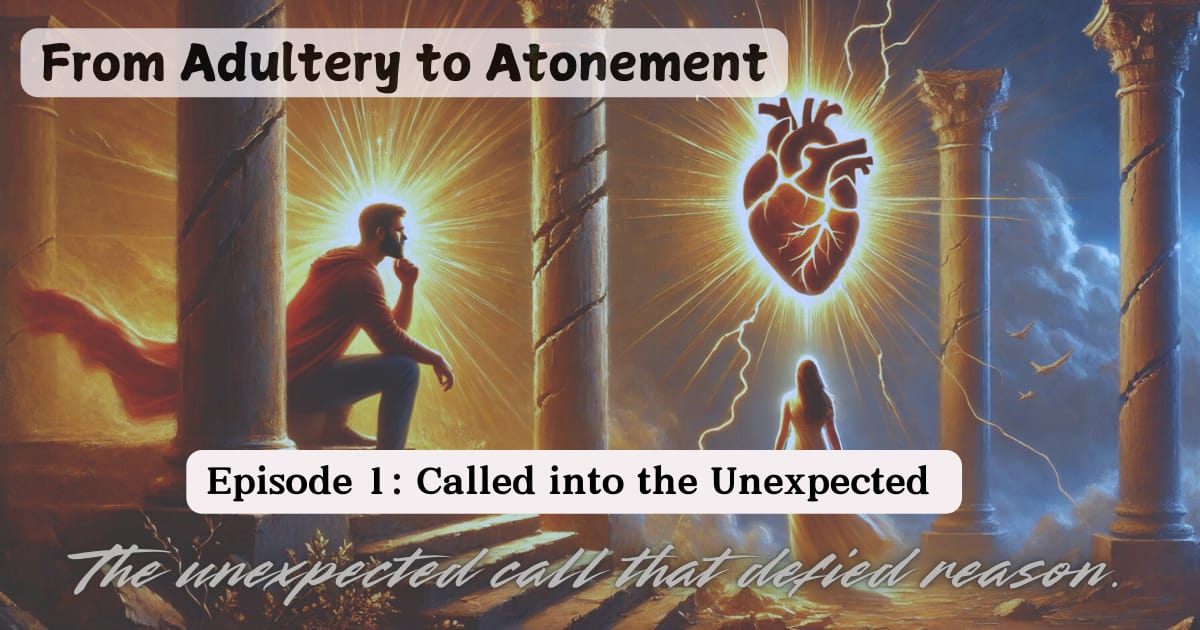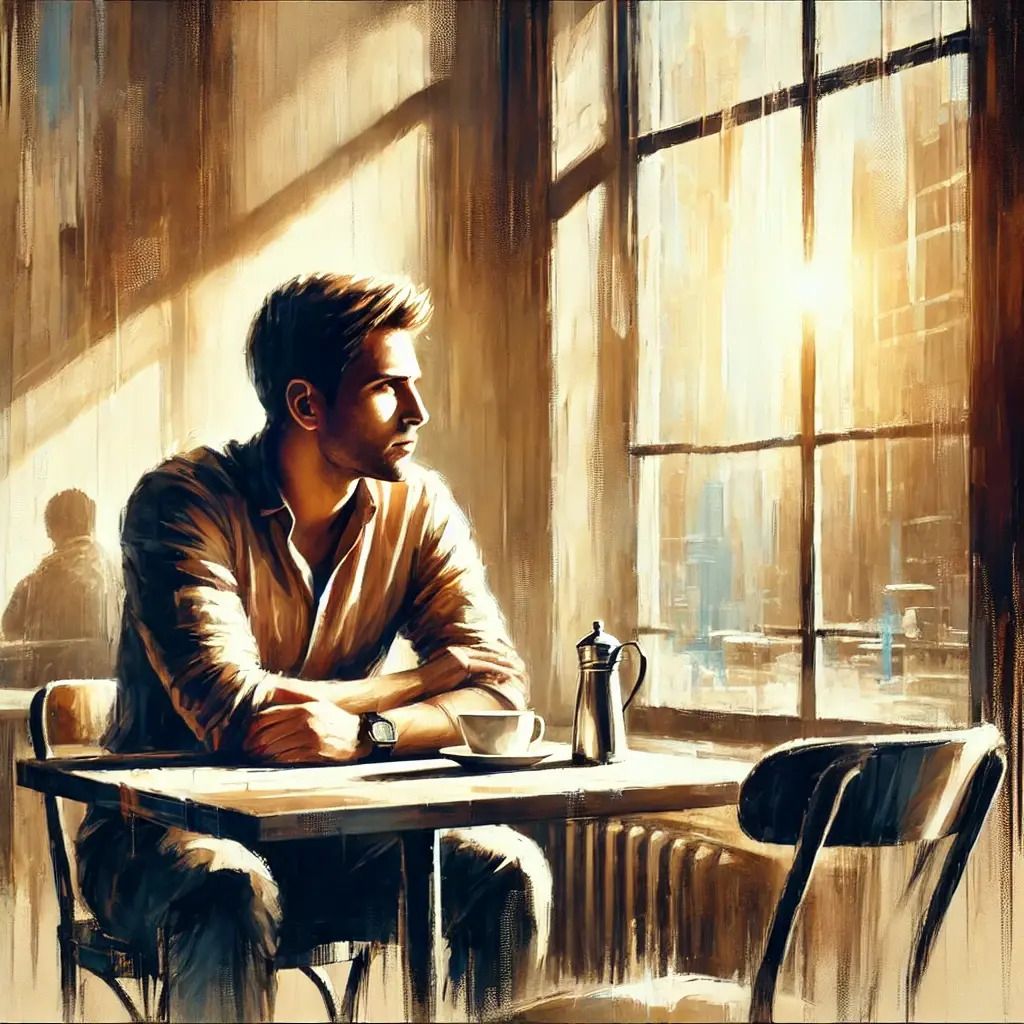- Word For All
- Posts
- Called into the Unexpected
Called into the Unexpected
The unexpected call that defied reason.

The city was alive, bustling with endless energy. Skyscrapers reached defiantly toward the heavens, their glass facades reflecting the sunlight and the ambitions of those who hurried beneath them. The streets hummed with urgency—cars honking, people rushing, conversations blending into a cacophony of voices. Everywhere you looked, there was movement: people chasing dreams, wealth, success, recognition.
This was a city that promised everything and yet gave so little. Behind the glitz and glamour was a darker reality—a relentless competition that bred envy, a selfish pursuit of self over others. Families drifted apart, relationships strained under the weight of monotony and neglect. Parents convinced themselves that their grueling work schedules were for their children’s futures, while children grew up with gadgets and screens as their only companions. |  The unrelenting pace of the city—alive with ambition and energy yet full of hidden emptiness. |
Technology, meant to connect, had instead created islands of isolation. The endless scroll of social media provided temporary highs but left people feeling emptier than before. Some turned to addictions—pornography, impulsive shopping, or even a curated emoji-laden digital persona—to fill the void. Yet, despite all the advancements and sophistication, there was an undeniable emptiness that no amount of success, money, or escapism could fill.
 A sanctuary of calm amidst the chaos—where moments of introspection are brewed like coffee. | But amid this chaos, there was a small café tucked away on a quiet corner. Its warm glow spilled onto the sidewalk like a beacon of calm in a restless world. Inside, the aroma of freshly brewed coffee mingled with soft murmurs and occasional laughter. For many, this café was more than just a place to grab a drink. It was a metaphorical sanctuary—a brief pause from the noise, a moment to breathe before diving back into their lives. |
Hosea was a regular at the café. His presence was familiar, like the scent of coffee that greeted patrons at the door. He was a man of simple tastes, always seated at the same table near the window, where he could watch the world pass by.
He wasn’t the loudest or the most charismatic, but there was something about him that drew people in. His words carried weight—not because he spoke often, but because he spoke with purpose. Hosea had a way of peeling back the layers people hid behind, exposing truths they had long buried. His insights were gentle yet piercing, like a surgeon’s scalpel, cutting through the facades of life’s hypocrisies.
Some called him a dreamer, dismissing his vision of a kind and righteous world as naïve. Others avoided him, uncomfortable with how easily he saw through them. Yet, for those who dared to sit with him, Hosea offered something rare: hope. His faith was the anchor of his life. To him, the café was more than just a place to pass the time; it was his mission field. He spent his days listening to people’s stories, offering wisdom when invited, and sowing seeds of truth in a world desperately in need of it. His eyes reflected both the sorrow of the brokenness he saw and the unshakable hope he held for its redemption. |  A moment of quiet reflection—where faith meets purpose in a noisy world. |
Gomer was another regular at the café, though her visits were for entirely different reasons. Where Hosea came to connect and reflect, Gomer came to socialize, network, and meet her clients.
She was magnetic, commanding attention the moment she stepped through the door. Dressed impeccably in the latest fashion, her confidence was evident in her stride. Conversations paused as heads turned, but Gomer was used to it. She thrived on attention, her ambition driving her to be seen, heard, and admired.
For Gomer, life was a game, and she played to win. Her goals were clear: wealth, influence, and freedom. Marriage? She felt, it was a cage and had no interest in entering. Family life? It is too restrictive for someone who craves new experiences and adventure. She lived on her own terms, unencumbered by boundaries or expectations.
Her relationship with God was, at best, a superficial one. She attended services when it suited her, donated to causes that boosted her public image, and did just enough to feel good about herself. But deep down, Gomer was restless. The allure of her lifestyle couldn’t mask the quiet ache in her soul—a longing she refused to acknowledge.
Hosea had seen Gomer many times but had never spoken to her. She, in turn, avoided him, knowing his reputation for being direct and unafraid to challenge the status quo. Gomer wasn’t interested in being confronted with truths she had no intention of facing.
This afternoon, Gomer was in her element. She stood near the counter, chatting animatedly with a group of acquaintances. A quick burst of laughter escaped her lips as she threw her head back, her vibrant energy captivating everyone around her. A young man approached her timidly, asking for a selfie, and she obliged, striking a perfect pose with her signature smile.
At a nearby table, two women leaned in close, their voices low but dripping with judgment. “She’s trouble, that one,” one of them whispered, her eyes darting toward Gomer. “Always surrounded by men, flaunting herself like she’s the queen of this place.” The other nodded, pursing her lips. “I’ve heard stories. Best to stay far away from her. People like her don’t change.”
Hosea was seated in his usual place, his gaze drifting between the vibrant scene Gomer created and the hushed murmurs at the gossiping table. He had seen her countless times, always surrounded by laughter, attention, and admiration. She was like a flame that drew people in, though some were burned by the intensity of her light.
And then, out of nowhere, the thought hit him.
“Marry her.”
Hosea froze, his heart skipping a beat. The café around him blurred, the noise fading into a muffled hum as the weight of the thought pressed down on him. He blinked, his eyes instinctively landing on Gomer as she continued laughing and talking, completely unaware of the storm brewing within Hosea.
“Marry her.”
The words were clear, firm, and unmistakable. Hosea’s chest tightened. His mind immediately began to rebel against the idea. “Why her, Lord?” the thought escaped his lips in a whisper. He glanced around nervously, afraid someone might have heard him, though no one had.
It made no sense. Gomer was everything he wasn’t. She was bold, untethered, and fiercely independent. Her life was a whirlwind of freedom and indulgence, while his was one of faith, structure, and quiet obedience. Why would God ask this of him? His thoughts spiraled.
The inner turmoil began.
Doubt: Was this indeed from God, or was it temptation? Was he just another man drawn to her beauty?
Fear: What would people think if they knew? Would they mock him or question his integrity? What if she rejected him outright? What if she accepted but resented him later? What would happen to his reputation, his carefully cultivated life of faith?
Faith: Could he trust that God had a purpose in this calling, even if it seemed impossible?
Doubt clung to him, whispering that this was impossible, that he had misunderstood. Fear joined the chorus, amplifying the uncertainty.
But then there was another voice—a quieter, steadier one. It reminded him of all the times God had worked through impossible and unacceptable situations, urging him to trust, even when the path seemed irrational.
Hosea opened his eyes and looked back at Gomer. She was still there, laughing, captivating everyone around her. To anyone else, she was untouchable, unreachable. But in that moment, Hosea felt something shift in his heart. He didn’t know what would happen next. He didn’t know if he dared to act on this divine nudge. But one thing was sure: this was no ordinary calling.
Dear friend,
Have you ever felt a nudge from God that didn’t make sense? A calling that seemed irrational, impossible, or completely outside your comfort zone?
Hosea’s journey is one of trust—trusting that God’s unconventional plans are good. Perhaps, like Hosea, you’ve felt that pull too.
God often calls us to step out in faith, to take risks that challenge our logic and test our courage. But when we trust Him, we open ourselves to a love and purpose far more significant than we could imagine. What about you? Are you willing to follow His call, even when it doesn’t make sense? |  A question for reflection: What would you do if called into the unexpected? |
What will Hosea do next? Will he act on the divine urge to pursue someone vastly different from him?To find out, subscribe so you don’t miss the next episode in this powerful journey of love, grace, and redemption.
If this story spoke to you or if you enjoyed reading it, can I request you share this with your friends and family?
Meet you in the next episode.
Note: This article is part of the series From Adultery to Atonement. You can read the introduction here.
Reply